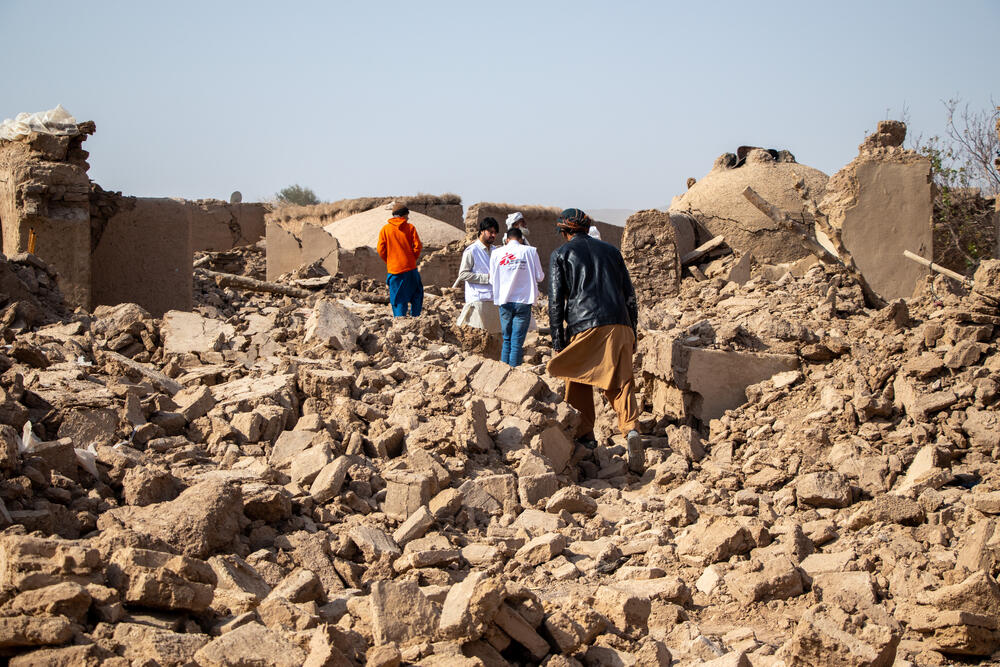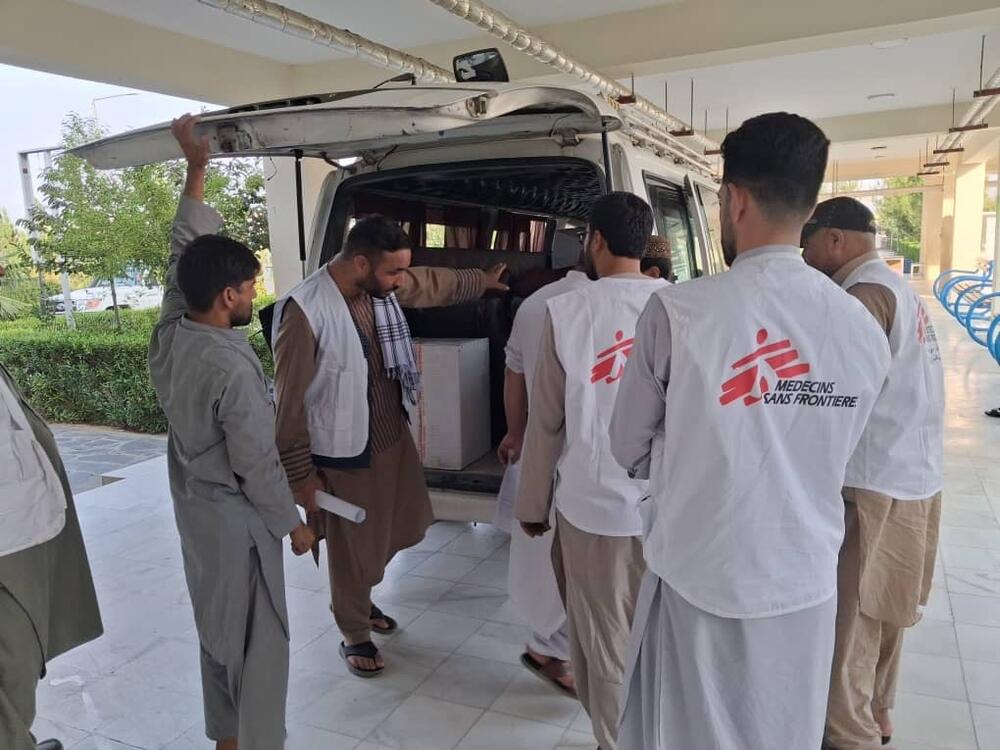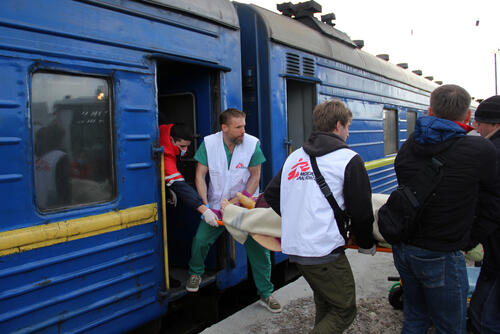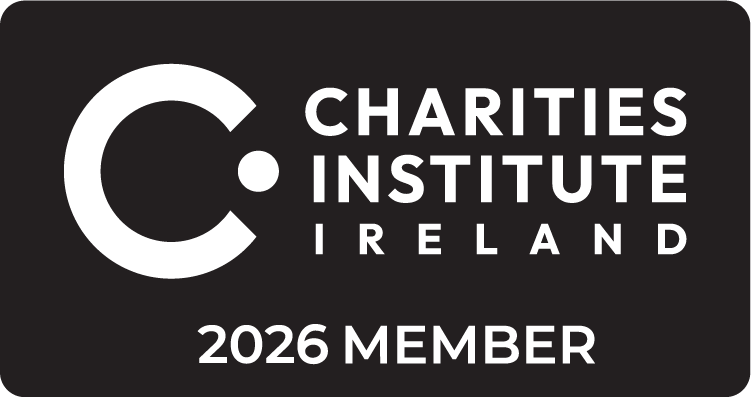Afghanistan earthquake: Latest updates
2 September 2025
A magnitude 6.0 earthquake has struck eastern Afghanistan. At least 800 people are reported to have been killed and more than 2,000 injured.
Entire villages have been reduced to rubble, with many people still trapped. Tragically, the death toll is expected to rise significantly.
The epicentre is in a remote and mountainous area of Kunar Province that is difficult to access, making rescue efforts challenging. Local hospitals are reportedly overwhelmed.
MSF teams in Afghanistan are currently in touch with the local authorities and international health organisations to assess how we may be able to provide medical support. Our teams in Kabul and other provinces are safe and accounted for. We continue monitoring the situation and our thoughts are with the victims and their families in these difficult moments.
UPDATE -11 September 2025
After the earthquake and aftershocks that struck Afghanistan’s eastern provinces of Kunar and Nangahar between 31 August and 4 September, around half a million people are in need of urgent health assistance according to the UN.
MSF is providing medical support in Patang camp, Kunar province, where around 1,000 affected families are being relocated. Medical teams are carrying out outpatient consultations including wound dressing, outbreak prevention, routine vaccination, women’s health and mental health.
“We treated patients while our teams continued building the clinic, mostly for fever and wound care. In the camp the weather is very hot, and you can see hundreds of tents, with people who keep coming in, we do our best to provide support” Ghausuddin Sabir, MSF emergency nurse.
Affected communities are still traumatised, processing the loss of their homes and loved ones, and in need of basic items such as clothes, hygiene kits and shelter. They need protection, especially children, some of whom lost their entire families.
2 September 2025
An MSF team reached Nangarhar and Laghman provinces in eastern Afghanistan to carry out an assessment following the devastating earthquake that struck on August 31. According to local authorities, more than 1,400 people have been killed and more than 3,000 injured.
MSF visited the Nangarhar regional hospital in Jalalabad city, where more than 130 patients injured by the earthquake received surgery, and around 600 patients were admitted in the past 24 hours, as well as Laghman provincial hospital. The team distributed trauma and wounded kits to the two hospitals.
“The two hospitals were already working at full capacity before the earthquake, we saw many patients treated in the corridors and health workers in need of supplies. The humanitarian response needs to scale up urgently,” explains Dr Fazal Hadi, MSF deputy medical coordinator.
MSF is assessing how to best contribute to the medical response. Many people remain under the rubble according to local sources, and the destruction of infrastructure has had a significant impact on living conditions and access to clean water, creating the risk of communicable disease.
We are experts at mobilising a response to catastrophic natural disasters. Read more >
MSF in Afghanistan
Médecins Sans Frontières/Doctors Without Borders (MSF) provides emergency, paediatric and maternal healthcare in Afghanistan, which has one of the highest maternal mortality rates in the world.




